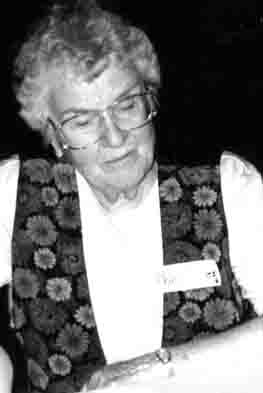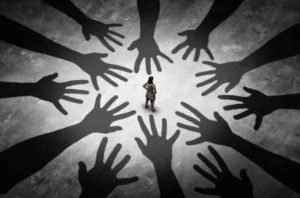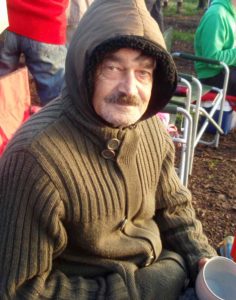
“Now I can begin dating again!”
A few years ago, a woman I knew well told me about the funeral of her stepfather, who died in his early nineties. Her mother, then eighty, had a severe mental illness that affected her conscience: she had none. She disrespected the old man and treated him cruelly and disdainfully for many years. As the pair stood to sing a hymn in the church, the elderly mother remarked loudly to her daughter, in a bright, sparkling tone, “Isn’t this just wonderful! I am so excited! Now I can begin dating again.”
I knew that elderly woman and understood her psychopathic characteristics. She had no interest in forgiving or being forgiven by anyone, certainly not her dear departed. She had no real attachment to him or anyone else.
Forgiveness on my mind
That is not the case with me. I have forgiveness on my mind from the moment Karl dies. And, as it turns out, so does he.
What forgiveness is not
At this point, it’s helpful to clarify what forgiveness is not. As Linda Graham explains, It is not condoning, pardoning, forgetting, false reconciliation, appeasement, or sentimentality (Bouncing Back, 2013: 184).
Further, as Marianne Williamson wisely reminds us, “Every situation is ultimately a lesson in forgiveness” (Everyday Grace, 2002: 45).
That is particularly the case with a sudden, violent, tragic, and unexpected loss, which can bring many emotions to the surface. It is also important to remember that people do forgive in the same way, as healing often occurs at different rates. In general, the deeper the hurt, the more time we will need. The forgiveness process is not rigidly fixed. Robert Enright reminds us that we will all grieve – and forgive – at our own pace (8 Keys to Forgiveness, 2015: 73).
Guilt

Among the emotions that arise for me after the crash is guilt, as I ask, “Why?” and “What if? These and other questions swirl around in my disoriented mind as I sit propped up in my hospital bed on the night of the crash.
I imagine Karl, lying naked on a slab in the morgue in the hospital basement. It will be freezing there. How he hates being cold, that skinny, little old guy! More than anything else in life, he hates being cold.

How can I send Karl warmth and comfort now, there in the hospital morgue?
Will he ever forgive me for not finding him in the morgue? For not covering his body and comforting him?
Then I agonize: did I kill him? I was a control freak in my business and in my personal life, I was a demanding wife. Karl was often distracted and exhausted. Was I so ignorant of the limitations of my worldview that I killed my sweetheart in my pursuit of perfection in our working life and our house-building enterprise?
KARL DID SO MUCH FOR ME…

After Karl died, several friends make a point of telling me (repeatedly, actually) how much Karl did for me in our life together. At that time, I have trouble receiving their comments because of my low self-esteem and my fragile sense of self.
I agonize to Karl in our conversations: “Did I express enough gratitude to you while you were alive? How balanced is our ‘account'”?
After all, we experienced years of acrimony over the sale and loss of our beloved house. Karl deeply distrusted Morag, our betraying friend — yet I forced through the deal to sell the house to her against his better judgment.
I feel terribly sorry and guilty about that.
